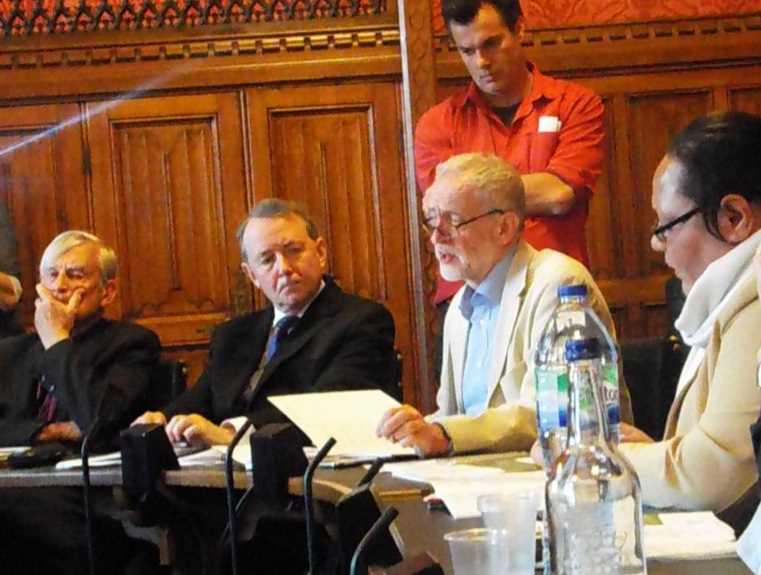Transcript of Jeremy Corbyn MP’s endorsement of the University of Warwick Politics of Papua assessment report on West Papua.
Palace of Westminster, May 3rd, 2016
“I refer you to […] page 3 of the execllent document put forward by Warwick University and the ESRC which – and I quote from it – says “that Papuans did not want their territory to become part of Indonesia. British diplomatic officials reported that '(privately) we recognise that the People of West Papua have no desire to be ruled by the Indonesians.... that the process of consultation did not allow a genuinely free choice to be made, and that the vote was a foregone conclusion.” And then it goes on to describe the former UN Under Secretary and his views on it.
Coming together as representatives from a whole lot of governments all over the region I think is historic – I can't remember a previous occasion of coming together, certainly not in the House of Commons – and I think the [Warwick University] document put forward here, and the 14 recommendations on pages 43-45 provide a very good framework for a way forward. A way forward in which there is international recognition of the human rights issues that pertain in West Papua, recognition of the rights of people to be represented, recognition of the rights of people to their own choice of their own future. And in advance of that choice being made, for example, visits by the UN Special Rapporteur which I understand seldom if ever happens, and the reinstatement of NGO organisations, and talking to international companies that are working there on what their role is in all of this because – I started by mentioning the mining situation and the pollution caused by that – that is not the only company working in that region without the consent of the people.
It's also about a political strategy, a strategy that brings to worldwide recognition the plight of the people of West Papua, forces it onto a political agenda, forces it to the UN, forces the exposure of it and ultimately that allows the people of West Papua to make the choice of the kind of government, the kind of society in which they want to live. That is a fundamental right.
All over the world there are issues in various places where recognition has not been given, free choice has not been given and that leads to decades and decades of conflict. Ultimately, you can continue with strong security measures, continue with pretending the issue will go away, or you can do something bold, recognise injustice when you see it, recognise the abuse of human rights when you see it, and recognise that both sides in any conflict benefit from a peace process, benefit from a recognition of human rights, law and justice. So I think the points that have been put forward there, the 14 suggested are a very good way forward, and as Member of Parliament I support them, and as a member of this group I support them and also as a former vice chair of the All-Party Human Rights Group.
If we want to live in a world of peace and justice, if we want to live in a world where our children can grow up in safety, where we can protect our environment, then actually it comes fundamentally from recognition of the human rights of everybody. That is what the Universal Declaration is there for, that is why I believe recognition of human rights and justice has to be the cornerstone of foreign policy, the cornerstone of our relationship with every other country. So I'm delighted that you've come here today, made these points to us, we will take them forward, I will discuss them within our party. I want these issues to become central to our party's policies in the future. Above all I want to see an end to the environmental degradation and destruction, and the right of people to be able to make their own choice on their own future, how they live their lives, how they live their lives in harmony with others, because that is fundamentally what we are all about. Thank you very much for inviting me today.”

